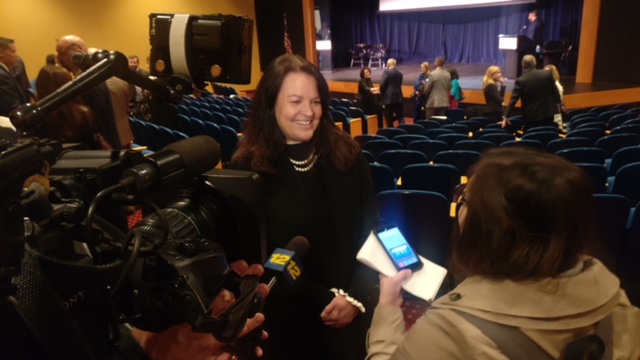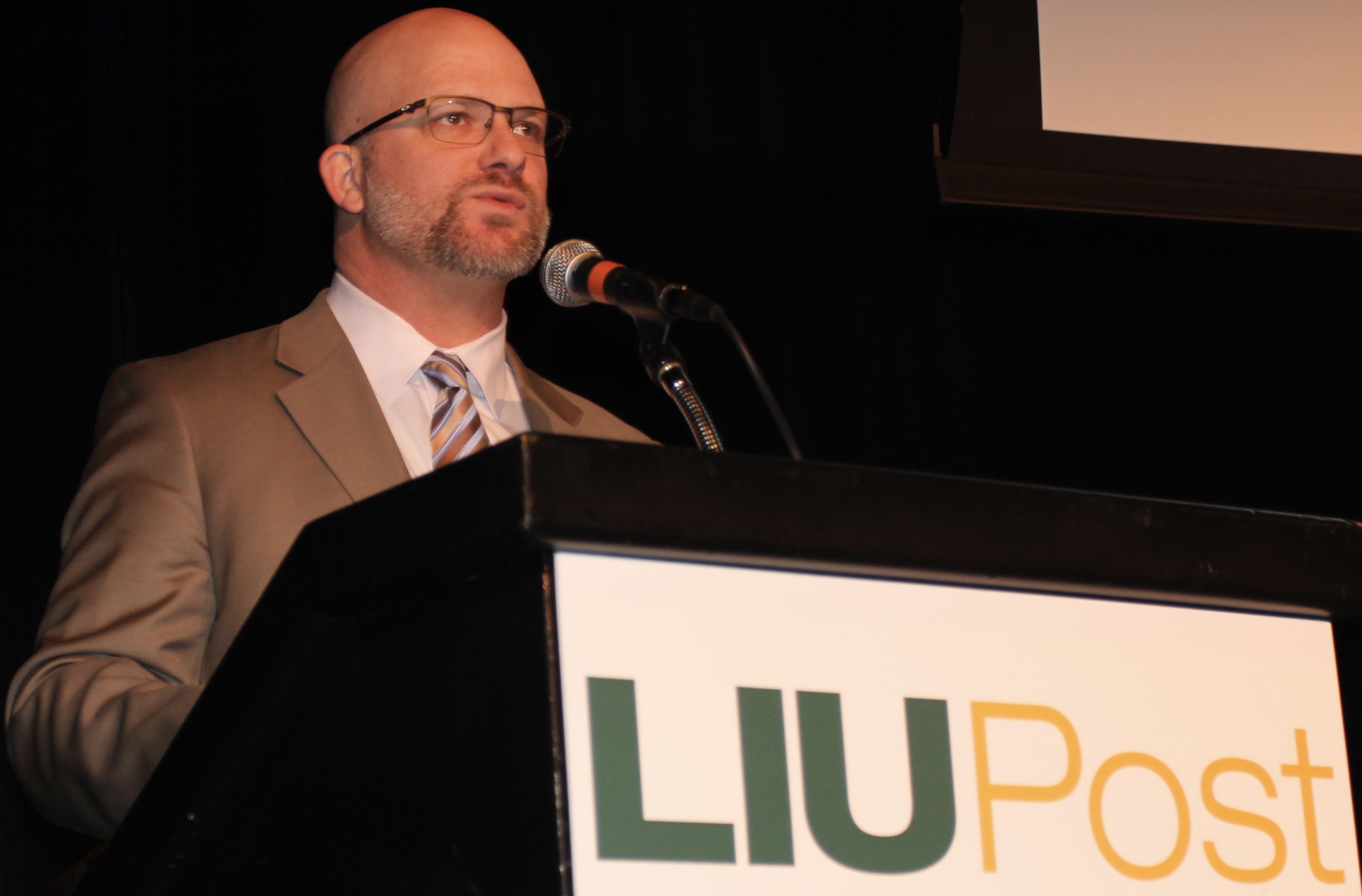Helping today’s high school students make a smoother transition to the rigorous demands of higher education was the focus of the Superintendents/College Presidents Partnership Regional Forum held at Long Island University’s Tilles Center on Nov. 28.
Almost 150 high school superintendents, principals and guidance counselors joined Long Island’s college presidents and administrators to hear concrete suggestions on how they can improve college readiness at the high school level.
The participants were greeted by LIU President Dr. Kimberly R. Cline, co-chair of the SCPP steering committee, who praised the hundreds of hours the volunteers had devoted to studying this important issue.
“Our collective effort will improve transitional pathways to college,” said Dr. Cline, “and will become an engine for equity, recognizing the need to identify gaps, share best practices, and develop new approaches to improve attainment rates.”
The SCCP is a work group formed in 2001 of the Long Island Regional Advisory Council on Higher Education (LIRACHE), which is a non-profit consortium of 15 colleges and universities, representing more than 178,000 students and more than 33,000 employees. The Partnership is uniquely focused on matters related to teaching and learning on Long Island, from preK-12 and beyond.
“College readiness is an issue that needs to be tackled,” said Dr. Albert Inserra, Dean of the College of Education and Technology at LIU Post. “It’s not so much an academic issue as it is about how kids can transition from high school to college, meaning: Can they work independently? Do they know how to manage their time? Do they know what it means to be in a college class where nobody’s calling your mother to tell her that you didn’t do your homework?”
The forum presented the results of three work groups that had handled the areas of counseling/advising, mathematics and writing skills.
“While academic skills are clearly important, social and emotional factors—the non-cognitive and meta-cognitive skills—are actually quite powerful when it comes to college readiness,” said Dr. Rachell Germana, interim assistant provost for academic success, division of undergraduate education, Stony Brook University, who co-chaired the first work group. She called for getting parents more engaged as effective partners in their children’s long-term success, preparing them for the “college mindset”—as she put it—as well as helping them choose what college to attend.
Dr. Timothy Eagen, superintendent of Kings Park Union Free School District, who co-chairs the SCPP steering committee, discussed what his working group on mathematics had recommended. “Our students rely way too much on their calculators,” he observed.
He brought a special perspective to this area as a former physics teacher. The goal for improving math fluency, he said, is threefold: “making it real, making it relevant, and making it practical.”
He pointed out that under New York State rules, high school students are required to take only three years of mathematics, and as a result many seniors in high school skip math only to wind up in worse shape when they get to their first year of college.
As Dr. Ellen Semel, superintendent of Islip Union Free School District, later put it, the forum reinforced the need to change the emphasis on statistics in high school. “We don’t do enough,” she said afterwards, calling the forum excellent. “That’s the most significant course freshmen college kids take and we give them calculus.”
When it was her turn to speak, New York State Education Commissioner MaryEllen Elia praised the work done by LIRACHE in creating SCCP.
“You have some incredible examples here of great partnerships,” Dr. Elia said, who added that the goal is to help all high school kids find their true pathway to success. “The real issue is: How do we guarantee that we have opportunities for all students in New York State and that every one of them has success in college, their career, or whatever they choose to do as the next step of their life?”
They all agreed that there is much more work to be done.




